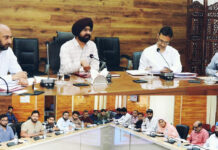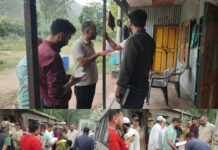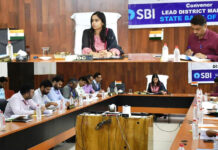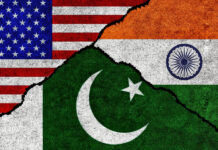Access to clean and safe drinking water is a fundamental human right and a cornerstone of public health and well-being. Yet, in several areas of Jammu, this essential resource remains frustratingly out of reach for many residents. Despite repeated complaints and pleas for intervention, the Jal Shakti Department has been slow to address the dire water situation, leaving countless households without a reliable supply of potable water. The residents of affected areas in Jammu have reported that the water they receive is often contaminated, posing significant health risks. This issue is not only a matter of inconvenience but one of public health urgency. Contaminated water can lead to severe illnesses, including waterborne diseases such as cholera, dysentery, and other gastrointestinal infections. In the current scenario, where health systems are already strained due to the ongoing challenges posed by various health crises, the lack of clean drinking water exacerbates the vulnerability of the population. One of the most troubling aspects of this crisis is the apparent apathy and inefficiency of the Jal Shakti Department. Despite numerous complaints lodged by residents, there seems to be little to no proactive measures taken to rectify the situation. This inertia is unacceptable. It reflects a concerning disconnect between the needs of the people and the actions of the authorities tasked with ensuring their well-being. Effective governance is measured not just by the policies set in place but by the tangible actions taken to address the needs of the populace. The Jal Shakti Department must urgently prioritize resolving the water quality issues in Jammu. This entails conducting thorough assessments to identify the sources of contamination, repairing and upgrading existing water infrastructure, and ensuring regular monitoring to maintain water quality standards. Moreover, the department should establish a transparent and responsive complaint redressal mechanism. Residents must be able to report issues and receive timely updates on the actions being taken to resolve their complaints. Regular communication and community engagement are crucial in rebuilding trust and ensuring that the voices of the affected populations are heard and addressed. The state government also has a crucial role to play in this matter. Allocating adequate resources and funding to the Jal Shakti Department for infrastructure upgrades and maintenance is essential. Additionally, the government should consider implementing long-term sustainable water management practices to prevent such crises in the future. This could include investing in modern water purification technologies, rainwater harvesting systems, and public awareness campaigns about water conservation. The drinking water crisis in Jammu is a pressing issue that demands immediate and decisive action from the Jal Shakti Department and the state government. The health and well-being of the residents should be the top priority, and no effort should be spared in ensuring that every household has access to clean and safe drinking water. It is only through proactive measures, efficient governance, and community engagement that this crisis can be resolved, and the fundamental right to clean water can be upheld for all residents of Jammu.

Dogra Herald is the media of J & K, breaking language and geographical barriers, connecting J & K to the rest of India.
0191 245 4946
info@dograherald.com
Latest articles
CSK unveils new jersey for IPL season, features camouflage as tribute to armed forces
iamjkstarr - 0
CHENNAI: Three-time IPL champions Chennai Super Kings on Wednesday unveiled a new-look jersey that features camouflage as a tribute to the country's...
Another rape in UP
iamjkstarr - 0
Inaction is worse than delayed action and busts holes in CM Yogi Adityanath's claims of deterrent activity
Soon after the brutal...
DGP calls for extra vigil to end terrorism
iamjkstarr - 0
DGP calls for extra vigil to end terrorism
Director General of Police Dilbag Singh on Wednesday called for extra vigil by the police and Central...



























